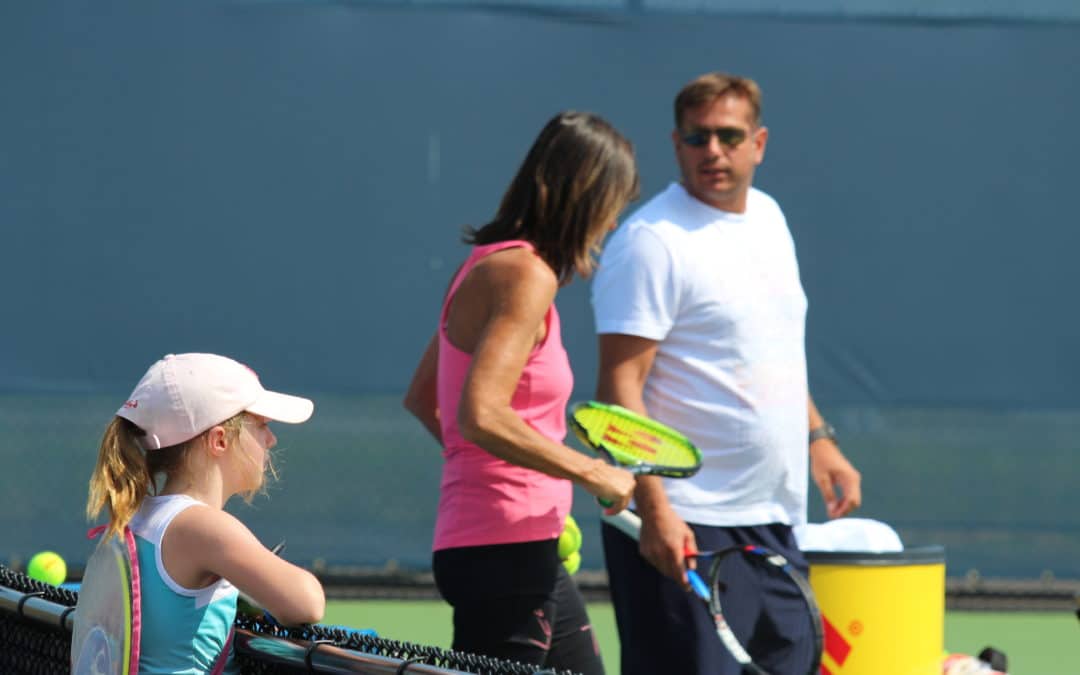Many girls report to their coaches that when they win their parent/s will be in a better mood. Players suggest things such as “I get more attention when I win” and “My parents get really angry when I lose.” A supporting role is critical to a player’s success. Tennis is very emotionally and physically demanding and a player needs to feel supported.
Appropriate parental responsibilities include:
- Make travel arrangements
- Book accommodation
- Make tournament entries
- Remind players to cool down after practice and matches when sometimes they might forget
- Restring rackets
- Order tennis balls
- Schedule practice matches
- Prepare meals for match day or protein/sports drinks
It is not a parental responsibility to:
- Make the tournament schedule – the coach is very experienced and has the knowledge about what tournaments are best. Parents will need to be part of this process due to logistics and budgeting
- Chart matches
- Scout opponents
- Act as an assistant to the coach
- Analyze technique or movement patterns
- Give pre-match tactical advice
- Do post-match talks regarding successes or failures
The most important thing a parent can do is set a good example for their daughter. At tournaments and also at home, parents should be encouraged to talk positively and respectfully about other players.
Parents need to be educated about the fact that past results have very little bearing on the next result. It is not uncommon for parents to talk about how many times their daughter has won or lost against different players when making comparisons. It can also be emotionally and personally harmful for the player if her tennis is compared to that of another player. In order to have a parent in the best possible role, it needs to be clearly defined by the coach. Giving parents set responsibilities within the team will empower them, enabling parents to make a positive contribution to their daughter’s tennis. Experience tells us that they will start trying to ‘help’. Coaches should be clear in setting specific boundaries, they can do this by giving the parent clear guidelines. Additionally, they can assess the parent’s strengths to identify how they can best contribute to the team. This will likely be in a ‘management’ type of role.

